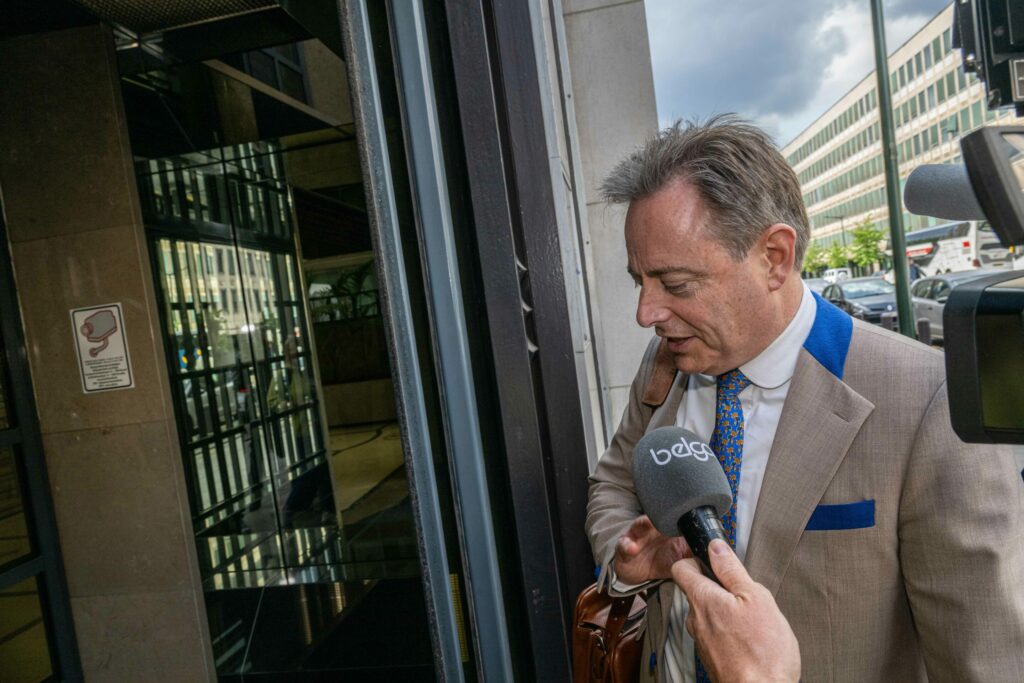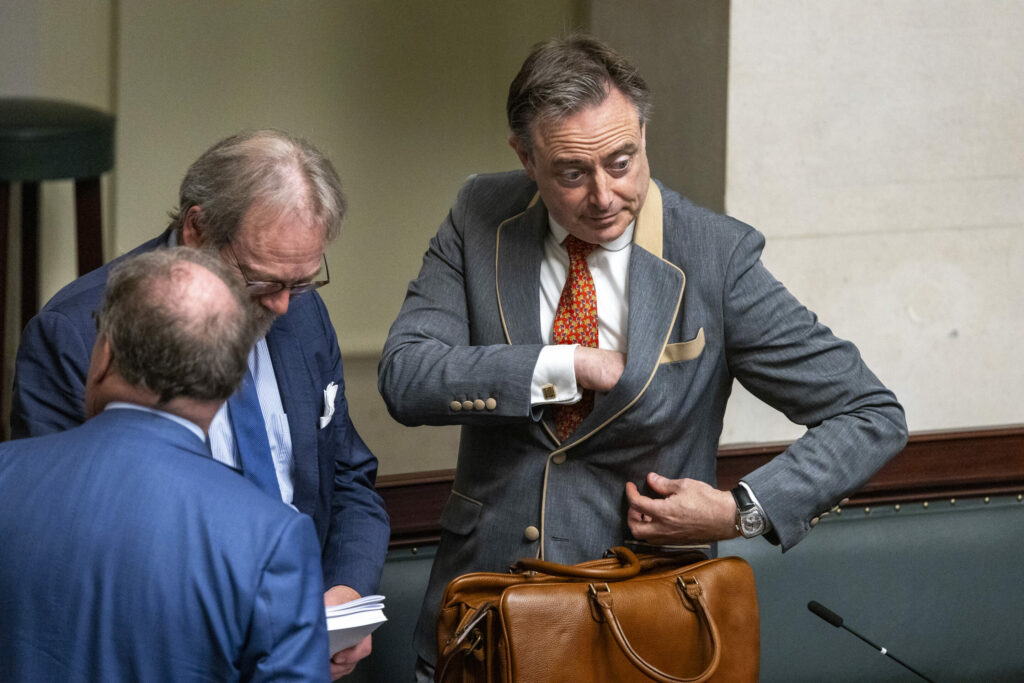After a week of holiday, the Federal Government formation process continues with discussions turning to national finances, namely how to balance Belgium's budget. The proposals put forward by formator Bart De Wever (N-VA) are sure to result in tough negotiations.
By 20 September, Belgium must submit a budget plan that will save €28 billion in order to rein in the high budget deficit and public debt. Of that, €14 billion will be sought through reforms and €14 billion through additional taxes or spending cuts.
The five parties negotiating the next Federal Government (N-VA, CD&V, Vooruit, MR and Les Engagés) are committed to forming a "socio-economic recovery government" that will push through major reforms. But the coalition partners have different views on how this should be done.
To simplify the negotiations, De Wever presented the other parties with a so-called "super note" of proposals to balance Belgium's budget.
A 10% capital gains tax
Most striking among the proposals are changes for savers and investors. De Wever wants to introduce a 10% capital gains tax on shares and bonds, L'Echo reports. Currently, Belgium is one of the only countries in the world with 0% tax on investment profits (known as capital gains), under certain conditions.
De Wever specified that costs incurred by investors to realise that capital gain (such as the stock market and securities tax) would be deductible, as would any capital losses.
Furthermore, small savers and investors should be spared from this new tax thanks to an option to collect up to €6,000 of capital gains tax-free. Historical and active shareholders would also still be able to sell substantial holdings in companies – up to €2.5 million untaxed.
At the same time, De Wever wants to reduce the withholding tax (a tax on interest and dividends, among other things) from 30% to 25%.

N-VA leader Bart De Wever talks to the press as he arrives for a meeting between representatives of political parties N-VA, Vooruit, CD&V, MR and Les Engagés. Credit: Belga/Jonas Roosens
This proposal was part of the major tax reform already tabled by De Wever's "super note" of a fortnight ago. This drew criticism from the other parties for being too closely aligned with N-VA's priorities. On Wednesday however, several negotiators confirmed to De Standaard that the new, reworked note still includes the proposal.
Also in De Wever's super note is the proposal to remove the tax exemption on savings accounts – a move that would make savings accounts less fiscally attractive than they are currently. At present, the first €1,020 of interest that savers earn each year is exempt from the 15% withholding tax. Other moveable income, such as interest on term accounts and savings bonds is taxed at 30% from the first euro.
Related News
- King Philippe calls for action to tackle Belgium's 'budgetary emergency'
- Here is how I pay almost no taxes on my investments in Belgium
- De Wever income tax cuts 'could have positive long-term effect' on public debt
Belgians are big savers, with over €250 billion in savings accounts. But this does little for national finances. De Wever's proposals aim to activate this significant sum, which in turn would generate an income for the State. By applying a single tax to savings, the proposals are in line with the tax reform that outgoing Finance Minister Vincent Van Peteghem (CD&V) put on the table this legislature.
Despite previous reluctance among the other four parties, De Wever's proposed reforms remained intact, leading some coalition partners to call the revised document "unbalanced" on Tuesday evening. Particular resistance comes from the lack of agreement between the socialist Vooruit and liberal MR parties.
On Wednesday afternoon the fiscal programme put forward by De Wever was deemed "unworkable" by partners, who have now asked the formator to revise the "super note" for a second time, to be submitted at the end of the week. Negotiations are therefore expected to continue next week.

